Australian tech companies are jumping on the AI wave: we’ve looked at 20 of the best
While GPT4 dominates the headlines when it comes to artificial intelligence, there’s plenty of AI work going on in Australia. We’ve looked at 20 of the emerging bright lights.

Despite the reams of breathless reportage about artificial intelligence and the impact it will have on the workplace and life in general, there may be a risk the impact is being underplayed.
Much of the attention has been focused over the past year on the large language model AI ChatGPT and its later iteration GPT4, developed by OpenAI, and for good reason.
Researchers at Microsoft, in a paper published in April this year, document some astounding abilities that GPT4 exhibits, including the ability to “draw” a unicorn, by inputting code into a program called TiKZ, which, given GPT4 is purely a language-based program, was surprising.
GPT4 also exhibits responses which accord with having a “theory of mind” or “the ability to attribute mental states such as beliefs, emotions, desires, intentions, and knowledge to oneself and others’’.
While GPT4 is weak in some areas - it sometimes makes basic mathematical mistakes - its capability in others, and the nuance of its responses, informed the title of that research paper: “Sparks of Artificial General Intelligence: Early experiments with GPT-4’’.
“We contend that (this early version of) GPT4 is part of a new cohort of Large Language Models ... that exhibit more general intelligence than previous AI models,’’ the paper says.
“We demonstrate that, beyond its mastery of language, GPT-4 can solve novel and difficult
tasks that span mathematics, coding, vision, medicine, law, psychology and more, without needing any special prompting.
“Moreover, in all of these tasks, GPT-4’s performance is strikingly close to human-level
performance, and often vastly surpasses prior models such as ChatGPT.
“Given the breadth and depth of GPT-4’s capabilities, we believe that it could reasonably be viewed as an early (yet still incomplete) version of an artificial general intelligence (AGI) system.
“The central claim of our work is that GPT-4 attains a form of general intelligence, indeed showing sparks of artificial general intelligence.’’
The technology world is, however, no stranger to hype.
Remember how Blockchain was going to revolutionise everything from the global financial system to stock trading and garbage collection?
Finding a broad use case for that technology beyond selling digital art to easy marks still appears to be some way off, if it ever arrives.
The difference with AI, is that, unbeknown to a lot of us, it has been with us for years.
Companies in logistics, data management, finance and retailing, just to name a few, have been early adopters, with Coles for example striking partnerships on a number of fronts with companies such as Microsoft and Finnish firm RELEX to streamline the process of getting groceries from suppliers into your shopping trolley.
Other Australian firms are turning AI smarts to the healthcare sector with Life Whisperer using its technology to help select the best embryos for IVF implantation and Harrison.ai,’ s annalise.ai providing a decision support solution for chest X-rays which it says is in use by hundreds of Australian radiologists already.
Other examples cited recently by global consultancy Accenture include:
- a food delivery service using deep learning to guide drivers to the best delivery routes.
- A Middle East-based telco using AI-driven virtual assistants which can communicate in different Arab dialects as well as in English to handle 1.65 million customer calls each month, and
- A solar-panel installer using satellite photos and deep-learning algorithms to create fully automated rooftop-installation plans and price estimates, providing an estimated 25 per cent drop in the firm’s sales costs.
The Australian has compiled a list of some of the major players, and the brightest new prospects, to watch in the Australian AI and machine learning space.
COMPANIES TO WATCH
FIVECAST
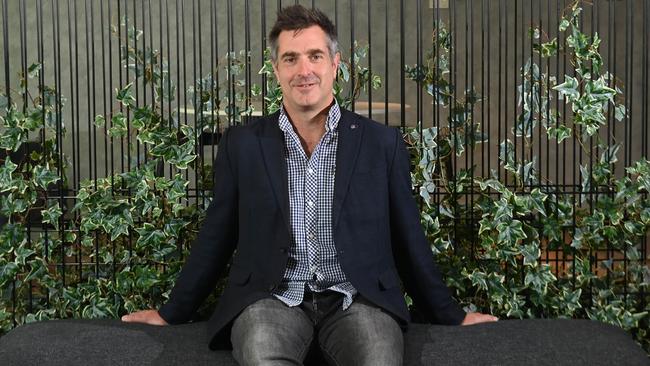
Fivecast’s ability to filter the flood of online data and turn it into credible threat assessments for its customers in government and business has supercharged the company’s growth in recent years.
The Adelaide-based firm was spun out of a Cooperative Research Centre in 2017, growing to well over 100 staff now with offices around the globe including in Adelaide, Canberra, London and Arlington, Virginia – home to the US Department of Defence headquarters, the Pentagon.
The company’s AI tools enable it to monitor data sources such as social media, and derive conclusions from that data.
On the defence front, it recently did some work looking at Russian paramilitaries which were getting involved in the conflict in Ukraine.
“They’re posting images on social media platforms like VK, posing in front of buildings, with addresses on those buildings – that’s a great source of intel for our customers where they pinpoint that’s where the Russian paramilitary group is right now,’’ Chief executive Dr Brenton Cooper said earlier this year.
Fivecast raised almost $US20m in new capital in April led by US-based cybersecurity venture capital firm, Ten Eleven, along with the CSIRO’s Main Sequence fund.
REEJIG
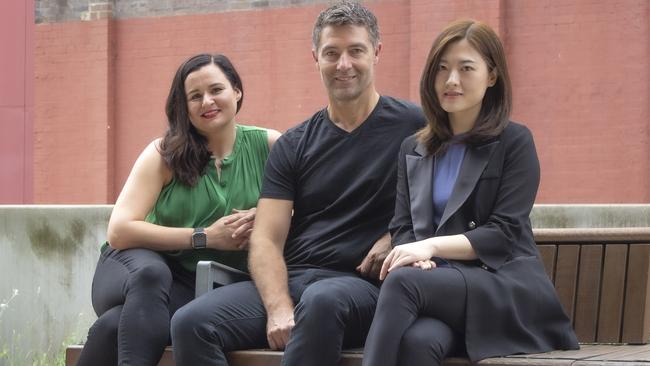
Sydney software start-up Reejig was last year handed one of technology’s highest honours – named a Technology Pioneer by the World Economic Forum - following the likes of previous winners Atlassian, Airbnb and Google as it ramps up hiring. Reejig has developed what it says is the world’s first independently audited ethical talent AI, created in partnership with the University of Technology Sydney, that it uses to ensure that biases are significantly reduced from the recruitment and talent management process. Chaired by former Westpac chief executive Brian Hartzer and led by chief executive and co-founder Siobhan Savage, Reejig uses AI to give management an overview of the skills base within a company’s workforce to clients including Woolworths, AWS and KPMG. It gives managers visibility over all the skills their employees have, and can predict where skills gaps lie.
COMPLEXICA
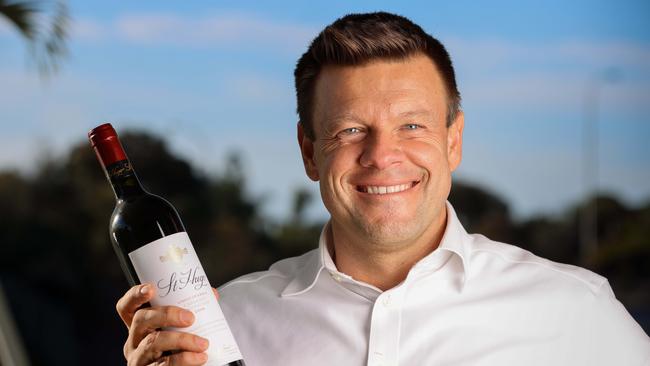
Got more data than a human can possibly absorb and lots of decisions to make in a short amount of time? Complexica can help.
The Adelaide-based firm develops and implements software applications used by large firms to digitalise and optimise their sales, marketing, and supply chain activities - a couple of simple examples include helping Flinders Ports - also a shareholder - decide where to stack their containers, or suggesting sales offers to reps from Liquorland.
Other customers include Pfizer, global wine giant Pernod Ricard, Metcash and Endeavour Group.
Acorn Capital recently invested $6.5m in Complexica, bringing its total funds raised to more than $31m since 2021, and at about the same time it acquired ports-focused software vendor Wave Systems in an all-cash deal.
PLAETOS
Building what its executives describe as an ‘employee listening platform’, Plaetos’ human analytics software is aimed at large enterprises, who use it to help reach goals related to culture, retention, wellbeing and digital transformation. The software aggregates existing text data from a business, feeding it through a pipeline of machine learning models and embedding metadata to conduct a deep analysis, helping business leaders understand where roadblocks lie. Based in Melbourne, the start-up has received initial investment from AI investor Boab AI, which is backed by major venture capital firm Artesian, and its early clients include Xero, ANZ, Deloitte and the University of Melbourne.
CONSILIUM TECHNOLOGY
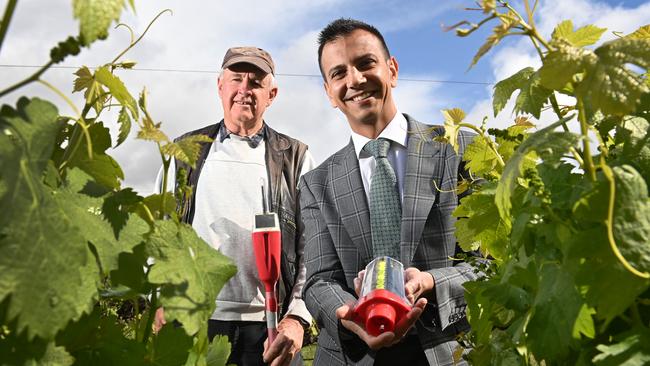
Consilium has a few strings to its bow, including the ability to create “digital twins” of real world and hypothetical situations, within which scenarios can be played out.
The end result might be a battlefield rendered by Unreal Engine - the world’s most advanced 3D computer graphics tool which is used by the leading video game studios - but which also incorporates simulated weather effects such as wind and temperature, for example.
At the other end of the spectrum its Green Brain product allows farmers to monitor soil moisture, growth variability across orchards or vineyards using satellite imagery, and monitor how much rain actually fell on a farm - rather than at the local monitoring station.
Founded by Seth Thuraisingham in 2010, Consilium last year merged with fellow SA company elmTek and is now owned by Australian growth investor Pemba Capital Partners.
NOLA
Dubbed the ‘Google Analytics for the physical realm’, Melbourne-based AI start-up Nola in October landed $200,000 in funding from Skalata Ventures to help accelerate a rapid take-up of its data capture technology by entertainment venues and large businesses. Founded in 2019 by Victoria Zorin, Nola has built anonymised video analytics software to help venues and other firms improve their visitor experience. Its solution provides insights on visitor count, marketing engagement and wait times by analysing video feeds. Ms Zorin says her start-up is cost effective and also ethical, and is designed to protect personal privacy while still offering rich data.
LIFE WHISPERER
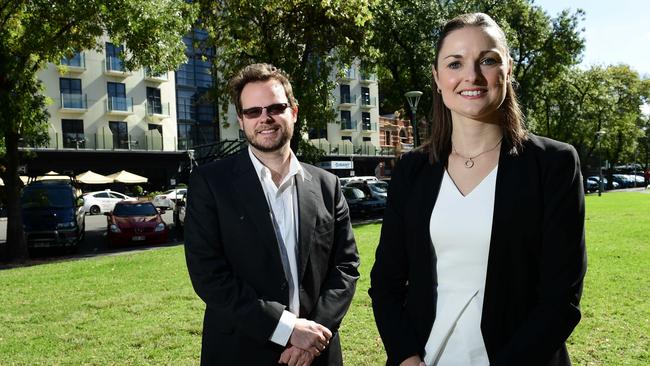
Adelaide-founded Presagen, and its fellow company Life Whisperer, are helping people conceive by selecting the most viable embryos for IVF implantation.
The company’s research just this month was recognised with an award by a distinguished reproductive technology journal, with the company’s paper describing how Life Whisperer’s Viability Artificial Intelligence improves the ranking and selection of viable embryos.
It does this by assessing images of the embryos, which until recently was done manually.
The company says its “viability and genetics AI-based embryo assessment tools are the first to be commercialised in a series of applications that encompass the complete IVF journey’’.
“Life Whisperer aims to improve IVF success rates at every point and, as a result, reduce time-to-pregnancy, making IVF more affordable and accessible to patients globally,’’ the company says.
“Life Whisperer is being used in IVF clinics around the world.’’
CADMUS
Borne out of a University of Melbourne research project nearly a decade ago, Cadmus has built a sophisticated platform to detect plagiarism and verify the authenticity of students’ work. The start-up, which received recent backing from the Victorian government’s $2bn investment fund Breakthrough Victoria, has helped universities decrease academic misconduct by 76 per cent, and its technology is becoming increasingly relevant given the rapid rise of tools like ChatGPT. “We’re experiencing rapid growth domestically and in new international markets and this timely investment from Breakthrough Victoria will allow Cadmus to sustain its rapid expansion,” chief executive Herk Kailis says.
COACH WELLY
Artificial intelligence will never replace gym and fitness instructors. But according to Owen Bowling, co-founder of Sunshine Coast-based Coach Welly, it can augment the human touch. Coach Welly will later this year launch a fitness app powered by AI that will prompt users towards healthier exercise and lifestyles.
“Our take on AI is that we can use it to enhance the service provided by a human,” said Mr Bowling, whose firm is seeking seed funding of half a million dollars.
“You have ChatGPT that is very clever when you ask it a question but what our platform does is prompt users in a very human way.
“For example, it could suggest you should do a pilates or yoga session based on the biometrics of what you have been doing during the past couple of days.”
He said Coach Welly worked by using data inputted by the user such as age and health goals but also information collected from wearables and other devices measuring heart rate variability and steps taken.
Mr Bowling said the start-up was targeting major gym chains, insurers and health departments. Coach Welly was recently short-listed as a finalist for two awards – Start-Up and App of the Year - at the 2023 Health, Fitness & Wellness Awards of Excellence in Singapore. Additionally, Mr Bowling recently presented the app as one of eight finalists in the innovation showcase for the Connected Health & Fitness Summit in Los Angeles.
“We are really excited about where the future will take us,” Mr Bowling said.
“What we are achieving with Coach Welly is revolutionising the way that gyms, health-focused organisations and even insurers, think about measurably improving physical and mental wellness.”
XY SENSE
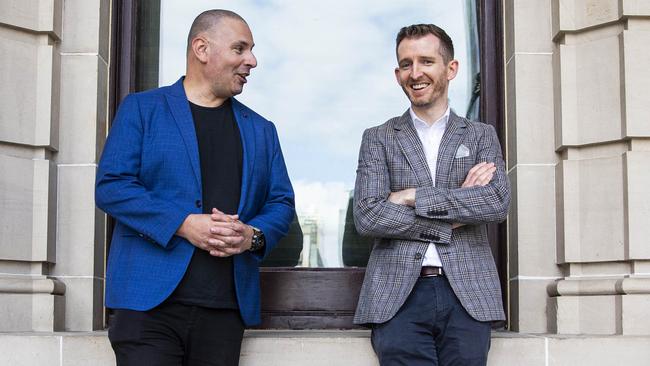
Launched in the middle of the pandemic, XY Sense produces sensors that capture real-time occupancy and people movement data to help executives better monitor and plan their office spaces. The start-up has doubled its customer base over the past 12 months, and has users in 17 countries. “Our sensor has been designed in-house and is 100 per cent anonymous.
“It uses an algorithm that can recognise and track people anonymously,” chief executive Alex Birch said.
“It’s designed with privacy and security from the ground up, and the data is fed in real-time through to our cloud platform and we have a dashboard that can show workers which spaces are available right now, and how different teams are using spaces.’’
PLOTLOGIC
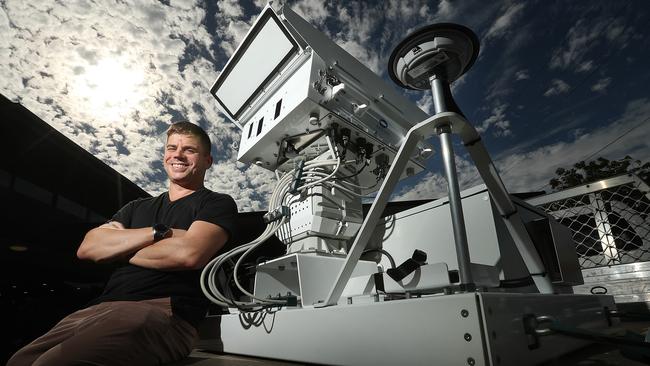
Brisbane mining tech Plotlogic is now working with some of the country’s biggest resources companies as they seek to implement more efficient mining operations using AI.
Started by industry veteran Andrew Job while he was doing his PhD at the University of Queensland, Plotlogic recently secured a contract with ASX-listed Pilbara Minerals to trial its technology at the Pilgangoora project in Western Australia, the largest hard-rock lithium operation in the world.
Plotlogic’s platform uses a combination of advanced imaging and artificial intelligence to locate ore bodies in a much more accurate way than traditional mining methods.
This enables mines to operate far more efficiently, with less wastage and environmental impact.
Job says the technology can extend the life of existing mines, helping eke out the last remaining value from projects in their final years of operation.
It can also revive industries, with Plotlogic working with Australia’s only operating primary tungsten producer, North Queensland’s EQ Resources, kickstarting a sector that has lain dormant in Australia for more than three decades because of the exorbitant costs involved as well as environmental legacy issues.
Plotlogic has gone from strength to strength over the last 12 months, signing four of the world’s top five mining companies, and completing a $25m capital raise backed by BHP - its first investment in a mining tech company - and the investment vehicle of former Google chief executive Eric Schmidt.
With mines under more pressure than ever to be efficient, Job says Plotlogic’s tech is becoming increasingly popular as a vital tool for helping the mining industry meet new requirements as it transitions toward net zero.
FINGERPRINT FOR SUCCESS
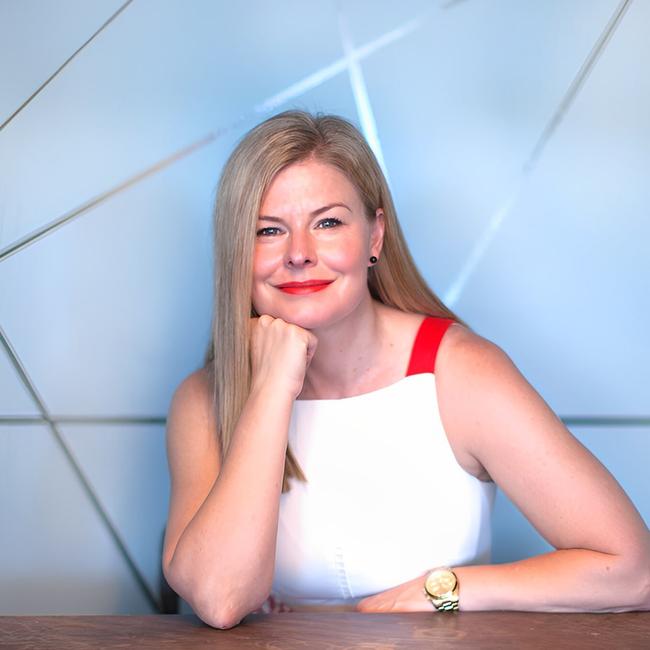
Receiving financial backing from former prime minister Malcolm Turnbull as well as Canva co-founders Melanie Perkins, Cliff Obrecht and Cameron Adams, Fingerprint For Success has built an AI coach – Marlee – which its chief executive Michelle Duval describes as “world-first technology pioneering the democratisation of coaching”.
Marlee is a freemium tool, meaning users can make a free account and queue up coaching sessions, and then chat back and forth with an AI chatbot which is similar to messaging over WhatsApp or SMS.
F4S is building on the rampant popularity of AI chatbots like ChatGPT and Canva was one of the company’s first customers, with thousands of its employees now accessing the F4S coaching software.
TRELLIS DATA
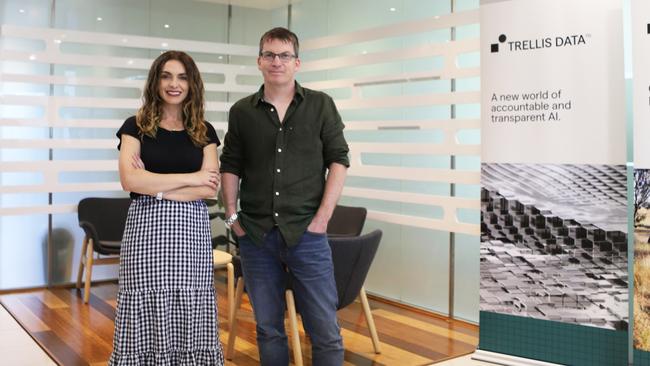
Australian AI and machine learning specialist Trellis Data this year kicked off a global expansion and is opening its first international office in the US, following a new round of funding from US-based Ultratech Capital Partners and CSIRO-backed venture capital fund Main Sequence.
The company’s technology, dubbed the “Trellis Intelligence Platform”, provides real-time trusted AI and has been deployed across a number of sectors including the Australian government and defence, logistics and consulting services.
The start-up, based in Canberra, has grown profitably, with revenue lifting by an average of more than 100 per cent year-on-year for the past four years, according to chief executive Michael Gately.
FLOODMAPP
Launched in 2018 by co-founders Juliette Murphy and Ryan Prosser, FloodMapp uses real-time flood prediction technology that provides up-to-date data as a flooding event unfolds as opposed to standard scenario industry models.
FloodMapp’s products Forecast, NowCast and PostCast provide flood intelligence before, during and after flooding to help with preparation, response and recovery through a groundbreaking rapid flood model technology called DASH.
Powered by artificial intelligence, DASH uses machine learning, hydraulics and hydrology algorithms to forecast and map flooding in real time.
It’s calculated that DASH runs 13,700 times faster than industry-standard 2D hydraulic models.
It uses over a billion data points and combines big data analytics, automation and machine learning techniques with novel hydrology and hydraulic models to achieve large scale, rapid flood modelling designed to give emergency managers rapid and localised flood data they can depend on for decision making.
Ms Murphy, who is the chief executive of the company, said all floods were different.
“Every flow is different and the 1 in a 100-year mark does not show you tomorrow what is it going to look like on the ground,” she said last year.
“The average weather information tells you what you might expect in February but you want to know whether to bring an umbrella with you when you walk outside the front door. That’s the difference.”
KJR
Launched on the Gold Coast in 1997, KJR initially started out providing strategic software tests and software quality consulting services.
Over time KJR expanded to become a software quality engineering consultancy working with
key industry sectors including defence, health, utilities, IT and government.
Currently just under 10 per cent of the quality assurance business is AI related but it is growing rapidly and in 2022-23 was a major reason why the company grew 30 per cent with businesses seeking to gain operational and competitive advantage by incorporating the new technology.
KJR helps businesses use artificial intelligence and machine learning, chatbots like ChatGPT and Bard, and harness big data and internet of things, to the maximum effect while at the same time mitigating cyber risk to their business.
The company operates nationally, but predominantly in Melbourne, Sydney, Brisbane and Canberra and has about 120 staff.
ASX LISTED
WISETECH GLOBAL
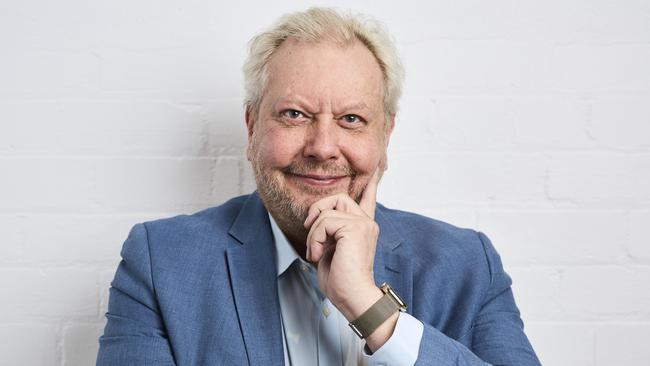
Shares in this $25bn tech behemoth have been on a tear over the past 12 months, and the company hasn’t been shying away from acquisitions, on top of its already hefty R&D spend. One of these over the past year was the purchase of Shipamax, which “uses AI and machine learning to convert unstructured data (e.g. PDFs, scans, images) direct from various sources, including emails, into machine-readable formats’’.
“The data is then used to automate manual tasks such as creating and managing forwarding and customs brokerage jobs and processing accounts payable invoices.’’
Wisetech shares are up more than 80 per cent compared with this time last year.
HUB24
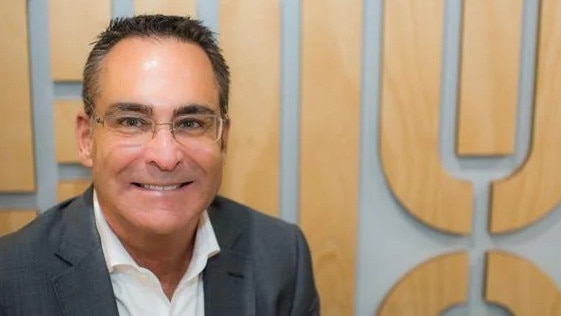
This $2bn tech firm provides a platform used by financial advisers, brokers and investment managers, which uses AI and machine learning to help them provide the best products to their clients, and make investment decision.
“Through innovative technology such as machine learning, artificial intelligence, and natural language processing HUBconnect integrates, refines, stores and supplies structured and unstructured data,’’ the company says.
“Through integrated data feeds, automated reporting and analytics, HUBconnect delivers efficiencies for some of the time-consuming and costly processes that increase the cost of delivering advice.’’
BIGTINCAN
Sales solution software firm Bigtincan in March launched its GenieAi artificial intelligence technology which, it says “enables sales, partners, customer-facing teams and all employees to drastically increase their productivity, improving how humans work and how they sell’’.
“The new features are driven by the latest technology known as ‘large language model tools’,’’ the company said.
“Bigtincan customers can take advantage of copywriting, content summarisation, Q&A style search and virtual personal assistant to help all users to increase both efficiency and effectiveness using a new approach to leaning and content creation.’’
VOLPARA HEALTH TECHNOLOGIES

Microsoft in the past few days has named Volpara its Global Healthcare & Life Sciences Partner of the Year which is not a terrible way to kick off the financial year.
The company’s AI-powered image analysis helps radiologists assess breast tissue with precision, “and helps technologists produce mammograms with optimal image quality, positioning, compression, and dose’’.
“In an industry facing increasing staffing shortages, our software streamlines operations and provides key performance insights that support continuous quality improvement,’’ the company says.
Volpara draws insights from more than 90 million mammograms.
The company recently said it achieved cash flow break even ahead of target and is looking to have positive EBITDA in the next 12-18 months.
AEROMETREX
Aerial imaging has developed in leaps and bounds over the past couple of decades, but now with an AI overlay, it’s even more powerful. Adelaide-based, ASX-listed company Aerometrex provides a suite of solutions through its MetroMap product, which can, for example, highlight all of the swimming pools, trees or lawns in an area, or identify solar panel penetration.
Great for businesses looking to target areas of high density for their product, but look out if you’re looking to build an unapproved addition to the house because that’s pretty easy to spot too.
Additional reporting: Glen Norris, Chris Herde






To join the conversation, please log in. Don't have an account? Register
Join the conversation, you are commenting as Logout